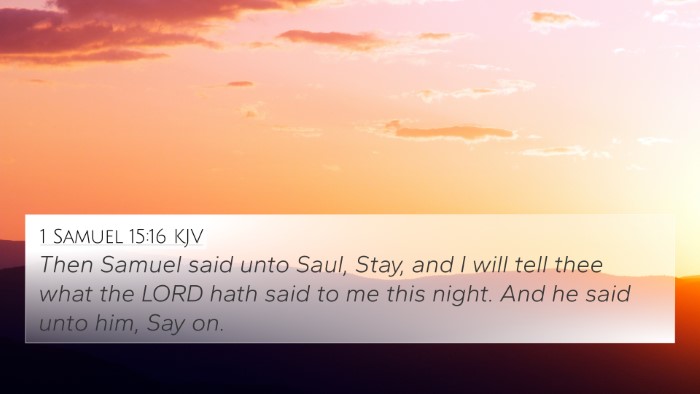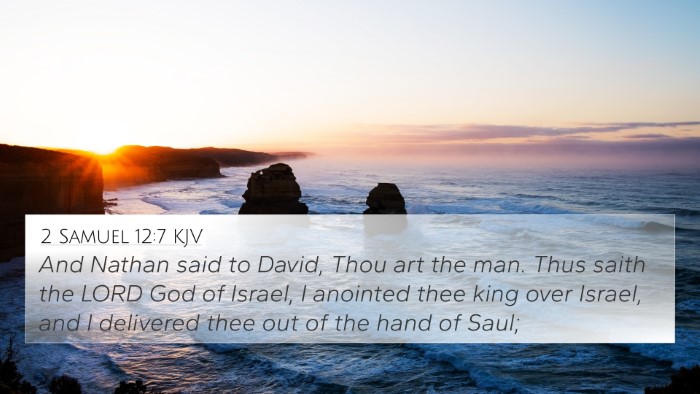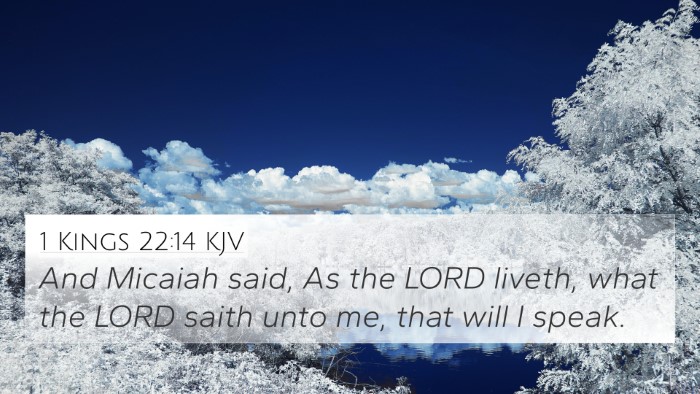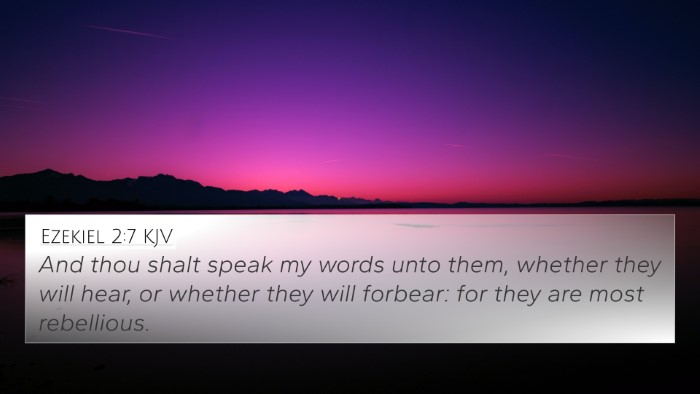Understanding Jeremiah 34:6
Verse: Jeremiah 34:6
In this verse, we see the Prophet Jeremiah playing a crucial role as a messenger of God's word during a time of turmoil and impending judgment upon Jerusalem and Judah.
Context and Background
- This chapter reveals God's command to the people of Judah regarding the release of Hebrew slaves, indicating the importance of freedom and adherence to His laws.
- The historical context is significant as Babylon is at the gates of Jerusalem, threatening capturing the city and its inhabitants.
- The call to release slaves was a reflection of God's justice and mercy, anticipating the coming restoration despite the looming judgment.
Commentary Insights
Matthew Henry's Commentary
According to Matthew Henry, this verse emphasizes the moral obligation of the Israelites to observe God's commands. He highlights the seriousness of disobedience that would lead to dire consequences.
Albert Barnes' Notes
Albert Barnes points out that the act of releasing slaves was not just a legal obligation but a spiritual one, underlining the need for compassion and justice in treatment towards their fellow Israelite brethren.
Adam Clarke's Commentary
Adam Clarke notes the significance of this period, illustrating a God's call to repentance and highlighting the connection between their treatment of one another and their relationship with Him.
Interpretational Themes
This verse, while specific to a historical context, speaks to broader themes relevant to scripture:
- Human Dignity: Recognizes the inherent dignity of individuals and the ethical imperative to uphold it.
- God's Justice: Depicts the necessity of adhering to God's laws resulting in mercy and justice.
- Freedom: The call to release slaves foreshadows spiritual freedom, paralleling New Testament themes of liberation in Christ.
Cross References
The following verses relate closely to the themes presented in Jeremiah 34:6:
- Exodus 21:2-6: Laws concerning Hebrew servants
- Deuteronomy 15:12-15: Release of Hebrew servants after six years of service
- Isaiah 58:6: True fasting includes freeing the oppressed
- Ezekiel 34:4: The shepherds of Israel failing to care for their people
- Galatians 4:3-7: Spiritual freedom through sonship in Christ
- 2 Corinthians 3:17: Where the Spirit of the Lord is, there is freedom
- Luke 4:18: Jesus’ mission to proclaim freedom for the prisoners
Connecting Themes through Cross-Referencing
Linking Jeremiah 34:6 with other scriptures invites a deeper understanding of the interconnectedness within Biblical texts:
- Thematic Bible Verse Connections: The theme of freeing the enslaved resonates throughout the Bible, underscoring God's concern for justice.
- Comparative Bible Verse Analysis: Analyzing Jeremiah alongside the New Testament illuminates the fulfillment of God's justice through Jesus Christ.
- Cross-Referencing Bible Study: Utilizing tools like a Bible concordance or cross-reference guide aids in finding meaningful connections.
Practical Applications
This verse invites reflection on personal and communal responsibility in treating others with dignity, understanding freedom, and practicing justice in our communities.
- How to use Bible cross-references: Join various verses to explore shared messages and themes.
- Identifying connections: Look for parallels between themes in the Old and New Testaments that enrich our faith.
- Bible verses related to freedom: Consider how various scriptures speak to the concept of liberation in Christian life.
Conclusion
Jeremiah 34:6 serves as a poignant reminder of God's desire for justice and mercy. It is a call not merely to act but to embody the values of freedom, dignity, and obedience to God's will, which resonate throughout both the Old and New Testaments. The rich inter-Biblical dialogue woven through various scriptures deepens our understanding and compels us to live out these truths.










